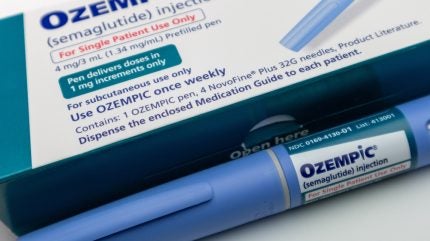
Compounders are on alert after the US Food and Drug Administration (FDA) declared the shortage of semaglutide –the active ingredient in glucagon-like peptide 1 receptor agonist (GLP-1RA) Wegovy and Ozempic – officially over in the US.
The move means compounders of the drug, who have seen sales rise over the past few years, are now required to stop manufacturing copycat versions. Compounded semaglutide has become a profitable business model for many telehealth companies that have benefitted from a short supply of Novo Nordisk’s diabetes and weight loss treatments Ozempic and Wegovy since 2022.

Discover B2B Marketing That Performs
Combine business intelligence and editorial excellence to reach engaged professionals across 36 leading media platforms.
FDA-approved drugs can be compounded under certain conditions such as if the original approved drug is in shortage and unavailable.
With Novo’s two flagship products removed from the shortage list, compounders are no longer legally permitted to make and distribute their own versions of semaglutide. The FDA has provided an off-ramp for production to minimise disruption to patients, giving pharmacies until April and outsourcing facilities until May to comply.
“We are pleased to share that the FDA has updated the status of Wegovy to “Resolved” on their drug shortage website, indicating that the supply of this prescription-only GLP-1 medicine now meets or exceeds current and projected demand in the US and that all doses of Wegovy are being shipped regularly to our customers,” Novo Nordisk said in a statement.
Novo Nordisk has been busy scaling its manufacturing capacity to maintain meeting demand for its drugs, including $6.5bn in investments to increase production in the US in 2025.

US Tariffs are shifting - will you react or anticipate?
Don’t let policy changes catch you off guard. Stay proactive with real-time data and expert analysis.
By GlobalDataOzempic and Wegovy’s shortage end will swing part of the diabetes and weight loss market back to Novo Nordisk. The drugmaker has been busy protecting its billion-dollar assets, previously asking the FDA to add semaglutide to a list of drugs too difficult to compound, citing safety risks.
Semaglutide follows rival GLP-1RA tirzepatide in making it off the FDA’s shortage list. Eli Lilly’s Zepbound and Mounjaro, of which tirzepatide is the active ingredient, was removed from the list in December 2024. The deadline for compounding pharmacies to stop manufacturing tirzepatide has already passed while outsourcing facilities have until 19 March.
Reaction from compounders
Telehealth company Hims & Hers – thrust into the public limelight earlier this month with its controversial Super Bowl advert – offers compounded semaglutide. Shares in the company tumbled 26% in the wake of the shortage resolution news.
“We will continue to offer access to personalised treatments as allowed by law to meet patient needs. We’re also closely monitoring potential future shortages, as Novo Nordisk stated two weeks ago that it would continue to have ‘capacity limitations’ and ‘expected continued periodic supply constraints and related drug shortage notifications’” Hims & Hers’ CEO Andrew Dudum said in a statement.
Scott Brunner, CEO of the Alliance for Pharmacy Compounding, said there is an argument for the premature nature of the shortage resolution, citing the American Society of Health-System Pharmacists (AHSP) list. The AHSP continues to show both semaglutide and tirzepatide in shortage.
“And I do question whether in resolving the shortage FDA has taken into account demand for the compounded drug,” Brunner stated.
“The number of patients who’ll need to be transitioned from compounded version to FDA-approved version – that’s likely hundreds of thousands of patients. There’s likely to be some sticker shock for many, and whether they’ll be able to continue to afford the therapy remains to be seen.”
Brunner did, however, praise the FDA for providing an off-ramp to help transition patients from compounded drugs to Novo Nordisk’s products.
“That period […] can help avoid an interruption of therapy for many patients,” he commented.
Update: The eight paragraph has been updated to include the correct brand name for tirzepatide.




